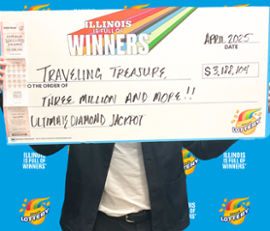Summary
- Increasing the minimum age for gambling from 18 to 21.
- We're introducing centralized deposit limits to create a more unified approach. Currently, individual players set their own limits, and operators only step in once certain thresholds are reached.
- Stricter advertising regulations are now in place, banning all sports sponsorships. Licensed gambling operators can no longer participate in sponsorship deals related to sports.
On July 15, 2025, the Netherlands Gambling Authority (KSA) launched a decisive crackdown on unauthorized gambling promotions infiltrating both digital and print media. For the first time, this bold move didn’t just target the illegal operators themselves. It aimed straight at the heart of the entire ecosystem fueling their visibility, drawing in media outlets, affiliate marketers, and advertising agencies under its scrutiny. At the center of this sweeping initiative were three affiliate giants: SBM Holding Group, Sun Block Media Labs 2.0, and JEF Holdings, the masterminds behind Casinoscount.nl. These companies were hit with hefty penalty orders for pushing both licensed and illegal gambling platforms. They faced steep fines: €75,000 for each week they refused to comply, capped at €225,000. These sanctions came after a relentless pattern of defiance, where warnings were ignored, and access to illegal content was brazenly restored after previous takedowns. KSA resolved to permanently block the domain. Alongside this, a related site, besteonlinecasinonederland.com, run by the same group, remains operational but is likely the next target for enforcement. This escalation wasn’t limited to ads alone. On that same day, the KSA formally warned ZEbetting and Betca for running illegal tennis betting markets, where wagers on single-set outcomes—a target for match-fixing under Dutch law—were allowed. Both companies quickly pulled these markets and introduced stronger internal safeguards. While KSA has always kept a close eye on operators, the shift to penalizing affiliates marks a new era of vigilance. The agency’s parallel compliance campaign, now targeting mainstream newspapers and magazines, highlights this increased rigor. In July, media outlets received clear guidance, emphasizing their responsibility to avoid publishing content that promotes operators unconnected to the Cruks system, the national self-exclusion register. Crucially, marketing agencies that placed these promotions are now under investigation. KSA has already started collaborating with the Netherlands Authority for Consumers and Markets (ACM) and the Dutch Advertising Code Foundation (SRC), and discussions with national media trade associations are ongoing to ensure full compliance and close any lingering regulatory gaps.
But why did this happen?
Back in June 2025, Optdeck, the powerhouse behind the Unibet brand, found itself in hot water over two significant infractions. The first involved a promotional vehicle branded with Unibet's logo, meant for use with the cycling team Unibet Tietema Rockets. This vehicle was caught breaking the Dutch rules against non-targeted advertising by being used beyond its intended purpose. Compounding their troubles, Unibet briefly enabled a forbidden autoplay feature in a game that offered BonusBuy options. While both of these problems were quickly addressed and attributed to errors made by third parties, the KSA made a crystal-clear statement: licensees must take full responsibility for any breaches, no matter if they originate from external vendors or sponsorship connections. This incident marked the beginning of the KSA's more stringent and vigilant regulatory stance. Renske Fikkers, the Head of Supervision at the KSA, delivered a powerful address at the Gaming in Holland event on June 5, underscoring a shift in how gambling is perceived. Once seen as just a game with risks, it is now regarded as a high-risk product necessitating rigorous oversight. Fikkers pointed to a discernible pattern: operators repeatedly failing to safeguard vulnerable players and consistently breaching marketing regulations have significantly undermined both political and public trust. This has prompted the government to weigh—or perhaps already implement—certain measures. The direction is unmistakable. The Dutch regulator is no longer limiting its scrutiny to illegal operators. It is now extending its reach to the entire chain, including affiliates, media partners, agencies, and licensees, all of which are under its enforcement net. The KSA has shown readiness to escalate from informal warnings to formal penalties, using tools like domain blacklisting and financial sanctions, even for issues resolved after the fact.
What will happen next?
The summer of 2025 is making a bold statement: the era of lenient regulation is over. What might have once been a simple warning is now seen as a serious breach, carrying hefty financial and reputational costs. In the Netherlands, the regulatory body is stepping up, much like its peers in Sweden and Denmark. It's not simply observing from the sidelines, but actively cutting off access to illegal operators who thrive on visibility, trust, and traffic. The KSA's crackdown is aimed at choking off the black market. A standout feature of this enforcement wave is the targeting of affiliate companies. Previously, intervention in this space was rare, especially online where legal boundaries are often murky. Typically, European regulators act only when there's a tangible presence within their borders. The Netherlands is breaking this trend, making it clear that actions impacting its territory will lead to accountability, regardless of legal loopholes. The path ahead leaves no room for doubt: expect increased inspections, stricter interpretations of the law, and diminishing leniency. Demonstrating a strong resolve, the regulator is collaborating with other government agencies, initiating legal actions, and applying every tool at their disposal to curb non-compliance. Focusing on non-compliant marketers is smart, as advertising is a gateway to the gray market. While websites might spring back up as mirrors, hefty fines create lasting deterrence. Yet, a harsher approach could spill over, affecting law-abiding, tax-paying businesses, potentially making the market less welcoming. Rising compliance costs and growing regulatory risks might drive even the most responsible operators to reconsider their presence in the Netherlands. So far, the Dutch authorities have struck a delicate balance: firm yet realistic. However, there's worry that in their quest to protect consumers, they might inadvertently weaken the legitimate market, leaving consumers with fewer safe choices and pushing them towards unregulated options. The enduring success of this strategy hinges on sustaining this balance—ensuring player protection without making compliance untenable.





























